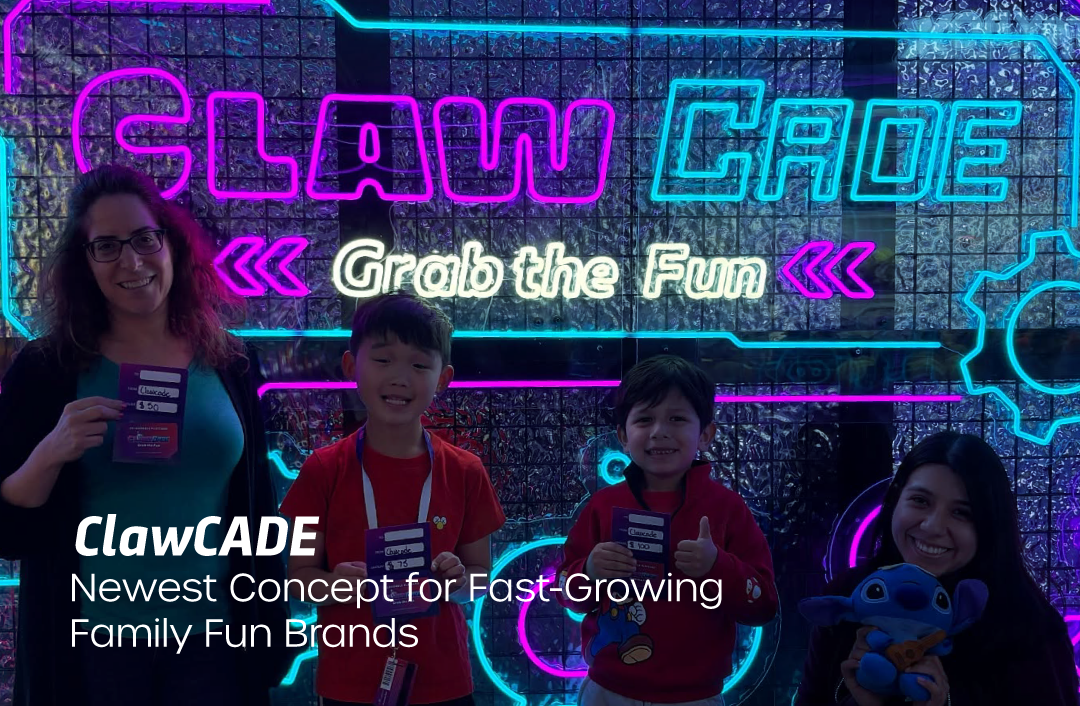For best results, take cues from your prospective customers and present your offering with their buying styles in mind.
In part one, we introduced the concept that like different personality characteristics, people tend to have different buying styles – or the way that they behave when buying and selling.
We tend to sell the way we like to buy, but that may not always be the best approach.
Now that we’ve discussed selling to the buying styles of Director and Entertainer, let’s finish up with approaching those prospects with the very different styles of Thinker and Harmonizer.
Style 3: The Thinker
Thinkers will have done their homework, so be prepared and accurate. They’ll have specific questions so you’ll want to take the time to answer them factually with examples, statistics, and results where applicable.
When you reach a Thinker on the phone, they may initially sound cautious, busy, or distracted. Take your time, but get to the point. It may sound like:
Prospect: This is Name.
Team member: Hi Name, this is Sherry with CenterEdge Family Fun Center. Hope you’re doing great today?
Prospect: I’m sorry, who is this again?
Team Member: (yes, you were probably talking too fast. Slow down 😊). Oh, it’s Sherry from CenterEdge Family Fun Center. We haven’t met yet, and I will only take a quick minute. The reason I’m calling is:
- We had your group in last year, quarter, month, and that time is fast approaching. I wanted to help you save time by calling to get your event rebooked. Are you still the person who handles that or is it someone else now?
- I am trying to understand who plans events for Organization, would that be you or someone else? (find out name & phone # where possible)
- I understand that you coordinate fundraisers for your organization, and we have a new fundraising program that is earning organizations XX% more on average than previous events. Are you the person I’d talk to about hosting an event, or someone else?
Thinkers do not want to chit-chat, and they’re prepared and task-oriented. They want to understand factually and logically why they should choose your facility. Pay close attention to what is important, but don’t make assumptions.
For example, they might tell you that they “don’t want to pay a fortune,” but that doesn’t mean you should assume they want the cheapest package. Be prepared to show the value of your best offering that meets their needs.
Once you have discovered their needs, give them the information the way they need it, (not the way you would like to hear it). It might sound like:
- Based on what you said about not having a lot of time to plan this, we can handle all of this for you to get you a carefully orchestrated event with every moment managed, including detailed schedules so you’ll know what we’re going to do and when.
- By planning the food now, we can ensure that everything will be out right on schedule so there is no interruption at your event, and people won’t have to worry and think about what to order. Really, it’s a no-brainer to ensure a flawless event, and it will save you on average XX% if you don’t have people ordering on their own.
Once you’ve outlined your offering, go ahead and ask for the booking. Yes, now! But be prepared to answer questions, talk about the value and compare advantages of packages. It might sound like:
- All right, I will prepare all of the details for you with a formal proposal that outlines everything in detail. We can lock in your date and time and give you one less thing to focus on with just a deposit of $XXX now. How does that sound?
- Perfect, I’ll get the event details written up for you to review and sign, but we can go ahead and get the deposit now so we don’t have to connect by phone again unless you have questions. How does that sound?
You’ve sold the event! Great job! Celebrate quickly and get those details over to the client as soon as possible to continue to deliver outstanding, timely, results for them.
Style 4: The Harmonizer
Harmonizers, like Entertainers, prefer to build friendly relationships with the people they buy from. They tend to need a little more time to make a decision, and to be assured they’re making the right decision for their family or group.
Be prepared with information about what other groups like theirs have done, how much fun the group will have, and how well-prepared your facility is to make their event magical.
When you reach a Harmonizer on the phone, they may initially sound warm and calm, or even a little hesitant or unsure. Match their tone and start to put them at ease and build rapport. It may sound like:
Prospect: This is Name.
Team Member: Hi Name, this is Sherry with CenterEdge Family Fun Center. Hope you’re doing great today?
Prospect: I’m ok, thanks for asking. How are you? …..Is there something I can help you with?
Team Member: Yes, Name, I’m so glad you ask because I was hoping you could help me. (Listen: “sure what do you need?”). Well, the reason that I’m calling is:
- We had your team/group/fundraiser out for an event last year, quarter, month and loved what you all were doing with raising awareness for autism. I was calling to see if that was something you all would be interested in rebooking? Are you the one who’s still responsible for that or someone else now?
- We recently sent you an email about Product Highlighted and I wanted to see how we might help your team with your next event? If you like anything you saw, I could give you more information, but if not, it’s no big deal. What do you think?
- I’m trying to understand who plans events for Organization, would that be you or someone else? (find out name & phone # where possible)
Harmonizers like the idea of helping and they appreciate a slower, more gentle approach than people with other buying styles. It’s important that you don’t apply pressure when talking with a Harmonizer.
Like always, discover their needs, possible objections, who you’re competing against, budget, and what’s most important to them. If you ask the right questions, they’ll tell you everything you need to know.
Once you have what you need, you’re ready to sell with their buying style in mind!
They want to know what others have done and to know they’re making the best choice for their group – while feeling like you’re on their side (which you are). It might sound like:
- Based on what I believe I heard, your group would really love to spend time really getting to know each other in a welcoming environment, what has worked really well for this other group like yours, was to provide the group with a really fun, laid-back event with everyone just getting together having a great time with XXX attractions.
- After the attractions, we’ll bring everybody back together for food options, so they can just continue their great time. How does all this sound?
- Ok, so to give you time for your meeting, but still have the time to get together and enjoy each other, what I would recommend is starting with your food options and meeting, and then afterward our facilitator can break up the teams and get the fun and team building. How does all that sound?
Once you’ve outlined your offering, go ahead and ask for the booking. Yes, now! But be gentle and assure them you’ve got this and they’re making the right decision. It might sound like:
- I love what we have come up with together. I feel like your group is going to love this event. I’ll get all the details of this written up, and all I’d need to reserve your date is just a deposit of $XXX now. How does that sound?
- (They want to review the proposal before signing). Sure, that makes perfect sense. It will take me
about 30 minutes to get the proposal together, why don’t I go do that, and then call you back at
XXX time to go over the details and help answer questions. Will that work or is another time
better?
You’ve sold the event! Great job! Celebrate quickly and get those details over to the client, thanking them for their business, reminding them that their group will love everything they picked out, and how you’re going to be with them every step of the way. Then move on to your next great conversation!
A buyer’s style will give us insights into how to sell to someone, but that doesn’t mean we should make assumptions about them or put them into a box of “that’s how they are.”
In every sales conversation, it’s critical to invest in the conversation, taking cues from your client and listening to what’s important to them. The more connected you are with each and every buyer, the more successful you’ll be, time after time.
If you want to learn more about buying styles, check out Navigate 2.0: Selling the Way People Like to Buy, By Dustin Hillis.
Now that you’ve learned about the different buying styles, how do you think your sales approach may change? Share with us!
Need to read part one? Go back now.
Search Resources
Subscribe to Email Updates
Featured Resources
News //
CenterEdge Now Integrates with PourMyBeer to Help FECs Serve Up Success

News //
ClawCADE is Newest Concept for Fast-Growing Family Fun Brands

Blogs //
Data-Driven Decisions: Using Management Software to Optimize Staffing & Guest Flow

Blogs //
How to Stay Productive When Your To-Do List Feels Out of Control: A Guide for FEC Owners & Operators

Posts by Topic
- Advantage Payments (7)
- Brand Management (19)
- Business Growth (81)
- Capacity Management (2)
- CenterEdge News (28)
- Client Interviews (8)
- Credit Card Processing (3)
- Data & Reporting (12)
- Digital Signage (1)
- Event Management (20)
- Facility Management (10)
- Food & Beverage (8)
- Guest Experience (34)
- Guest Management (20)
- Holiday Season & Promotions (5)
- Industry Events (10)
- Inventory Management (1)
- Loyalty Programs (8)
- Marketing Tips (24)
- Operations (1)
- Point of Sale (10)
- Product Launch (11)
- Productivity (5)
- Profitability (35)
- Redemption Management (1)
- Sales (35)
- Season Passes (1)
- Team Training (60)
- Waivers (2)

Leave a Comment